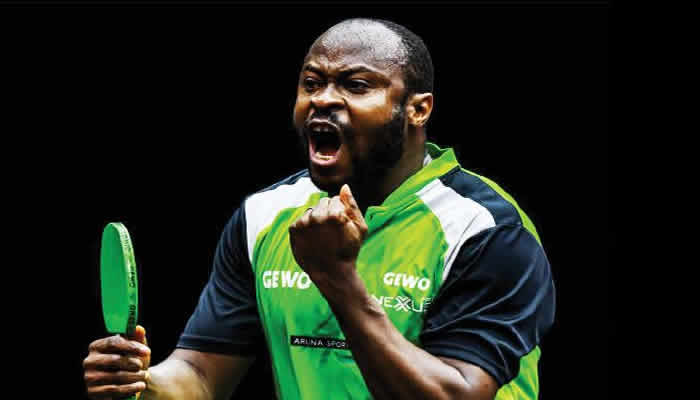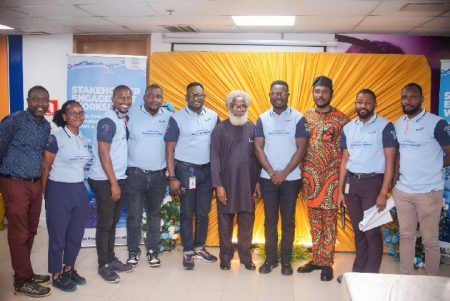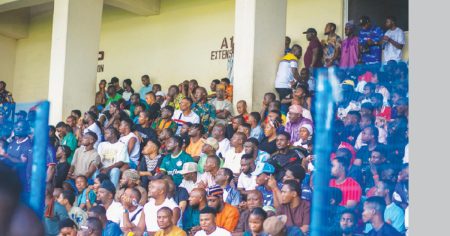Quadri Aruna, Nigeria’s leading table tennis star, experienced a slight dip in the latest International Table Tennis Federation (ITTF) World Rankings, moving down one spot to 24th despite maintaining his 1,140 points. This shift is attributed to the dynamic nature of the rankings, where other players’ point accruals can influence positions even without direct competition. Aruna’s current ranking relies on points earned from significant past performances, including his second-place finish at the 2025 ITTF African Cup and a semi-final appearance at the WTT Star Contender Doha. However, with these results approaching their expiration date and Aruna’s lack of recent tournament participation, his ranking is vulnerable in the face of upcoming ITTF events. This underscores the importance of consistent engagement in high-level competitions to maintain and improve ranking positions.
In contrast to Aruna’s slight decline, Fatima Bello provided a positive development for Nigeria in the women’s category, ascending four positions to 92nd globally with 230 points. Bello’s improvement, despite not having competed since the World Championships in Doha in May, highlights the fluidity of the ranking system and the impact of points adjustments. Her ranking continues to benefit from her performance at key events, such as the 2025 ITTF African Cup, the 2024 African Championships, the African Team Championships, and the Paris 2024 Olympics. This consistent performance across various tournaments solidifies her position within the top 100, showcasing the value of strong results in major competitions.
The men’s world rankings continue to be dominated by Chinese players, with Lin Shidong, Wang Chuqin, and Liang Jingkun occupying the top five positions. Brazil’s Hugo Calderano stands out as the highest-ranked non-Asian player, holding the third spot. This dominance underscores China’s continued strength and influence in the world of table tennis. The concentration of top players within a specific region emphasizes the importance of global competition and the challenges faced by players from other regions in breaking through the established hierarchy.
Beyond Aruna’s minor setback, other Nigerian male players experienced downward movement in the rankings. Omotayo, Kuti, and Adegoke all dropped several positions, reflecting the competitive landscape and the impact of inactivity or less successful tournament outings. Azeez Solanke experienced the most significant decline among the Nigerian players, a situation that underlines the constant pressure to maintain performance levels in the highly competitive world of professional table tennis. These shifts emphasize the dynamic nature of the rankings and the importance of consistent performance for maintaining position.
However, amidst the general decline in rankings for Nigerian men, a young talent emerged as a beacon of hope. Twenty-year-old Taiwo Mati climbed five places, representing the most significant positive movement for any Nigerian player this week. Mati’s steady progress signifies the development of young Nigerian talent and their potential to rise through the ranks. His improvement highlights the importance of nurturing emerging talent and providing opportunities for them to compete on the international stage. This upward trajectory suggests a promising future for Nigerian table tennis and the potential for future breakthroughs.
The women’s rankings, similar to the men’s, are dominated by Chinese athletes, with Sun Yingsha leading the pack. This dominance mirrors the men’s rankings, highlighting the comprehensive strength of Chinese table tennis. The presence of numerous Chinese players in the top positions reflects their systematic approach to talent development and the resources dedicated to the sport. Other Nigerian women, including Fashola, Ojomu, Edem, Udoaka, and Aiyelabegan, experienced mixed fortunes in the rankings, illustrating the fluctuating nature of the system and the continuous challenge to maintain and improve their positions. Their varied performances highlight the individual journeys within the sport and the ongoing efforts to compete at higher levels.
The ITTF World Ranking, updated weekly, plays a pivotal role in determining entries, seedings, and qualifications for major international tournaments, including the Olympics. It functions as a performance indicator, based on a player’s eight best results over a 12-month period, with different point values assigned to various tournament tiers. The system, while not directly penalizing losses, emphasizes consistent performance and strategic tournament participation. This dynamic system rewards active participation in higher-tier events, encouraging players to compete regularly and strive for better results. Understanding the nuances of the ranking system is crucial for players and coaches to strategize and optimize their performance on the global stage.














